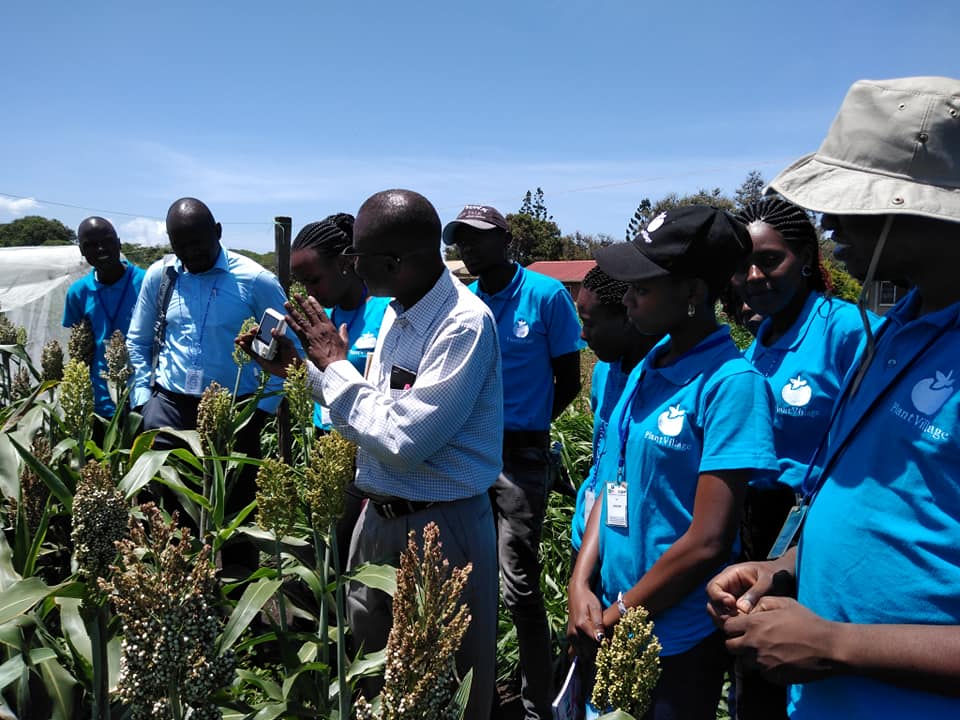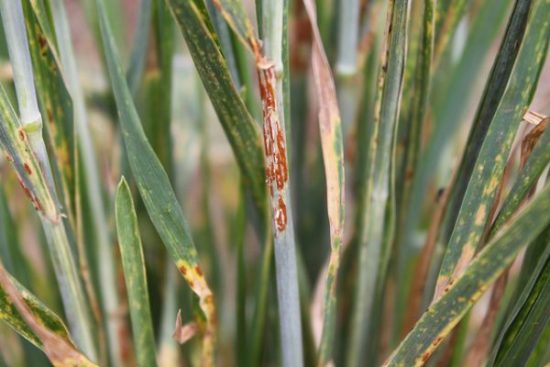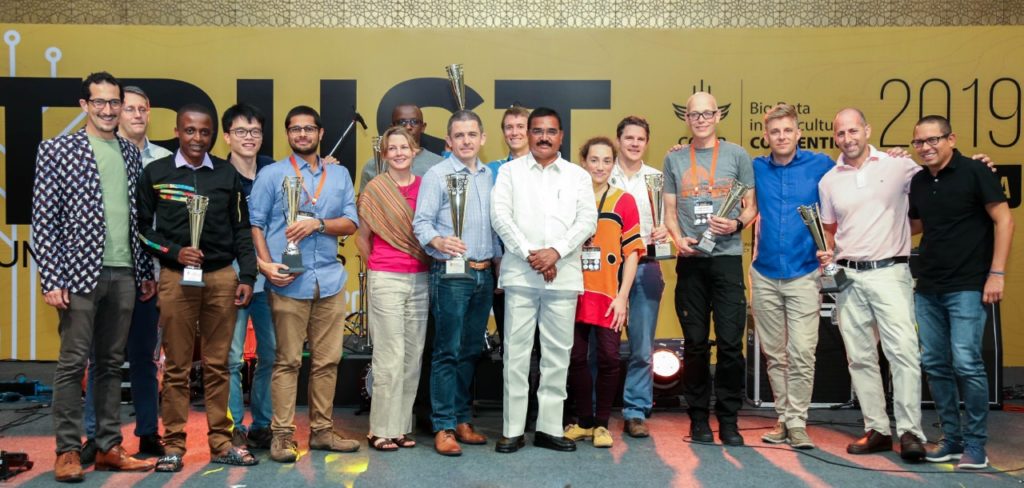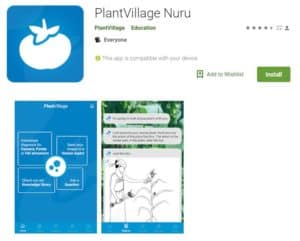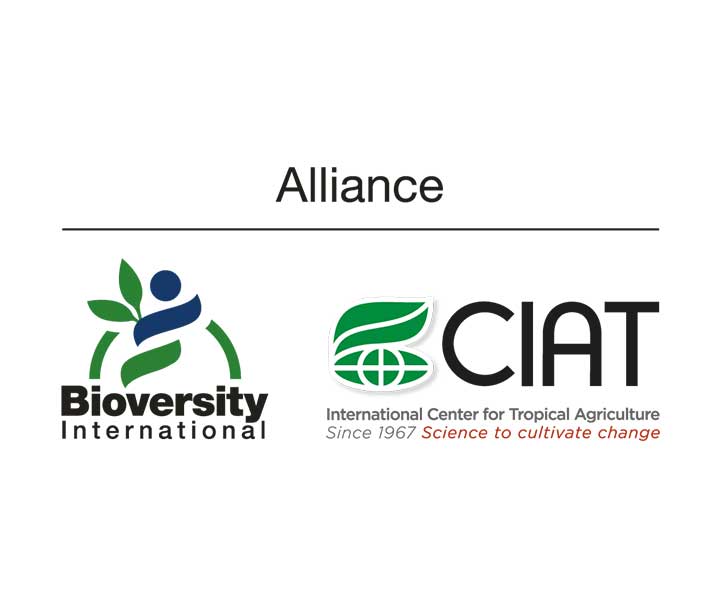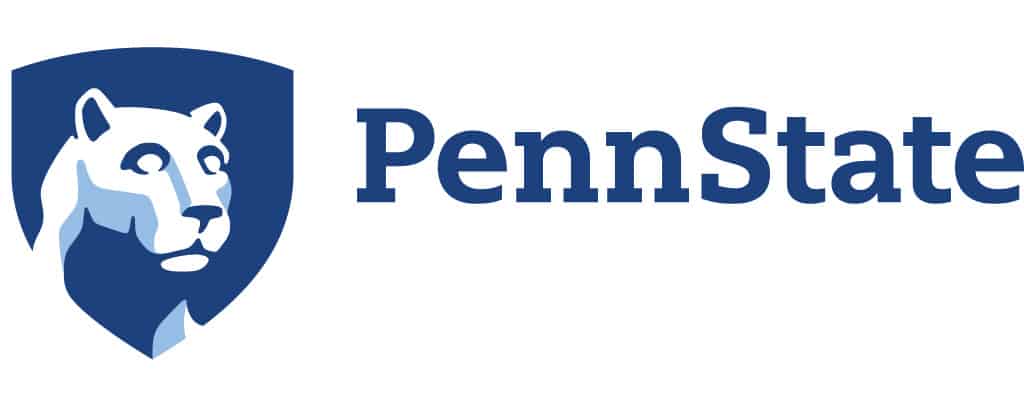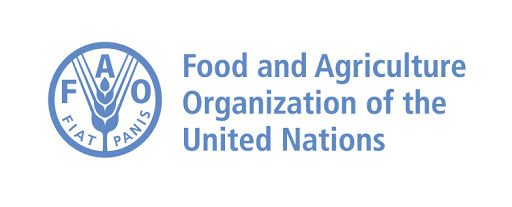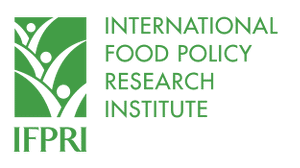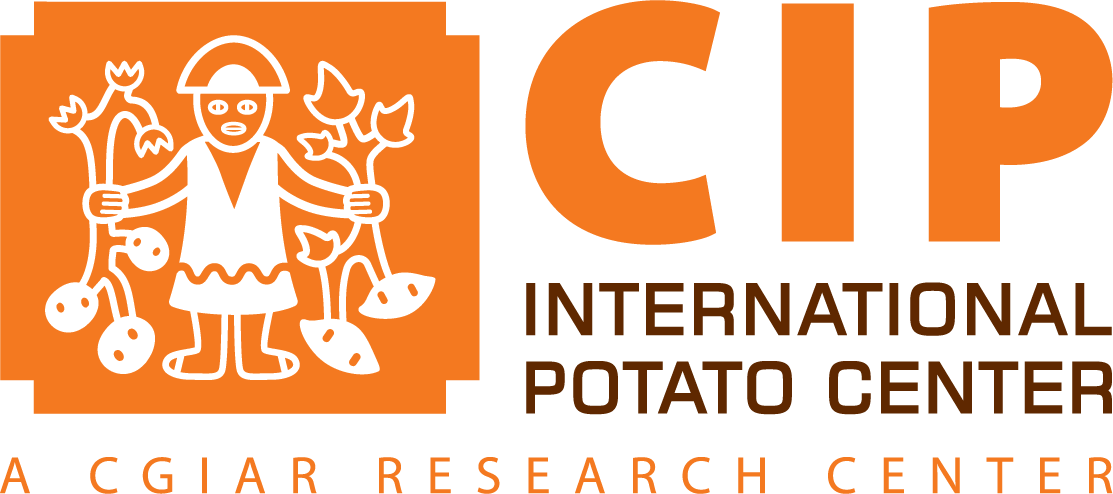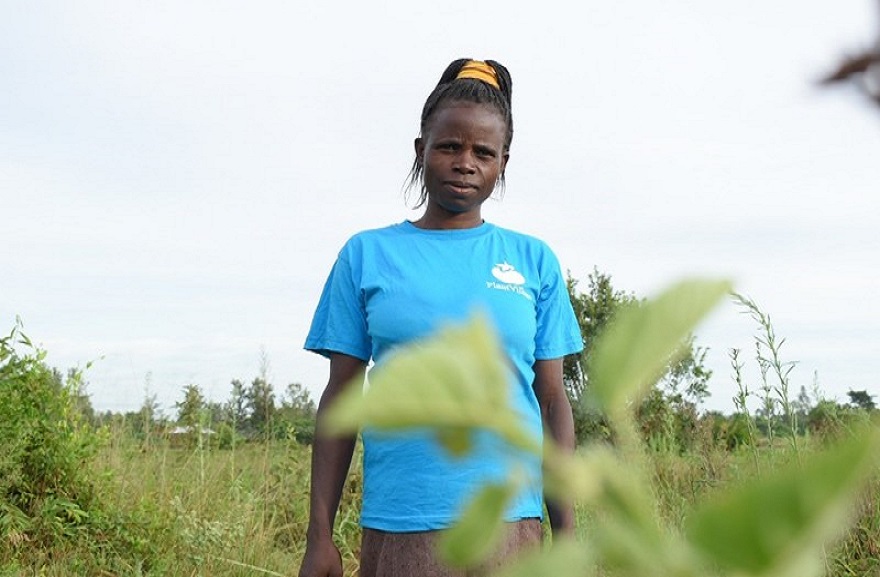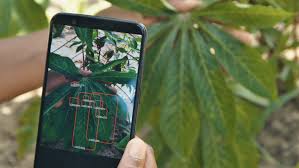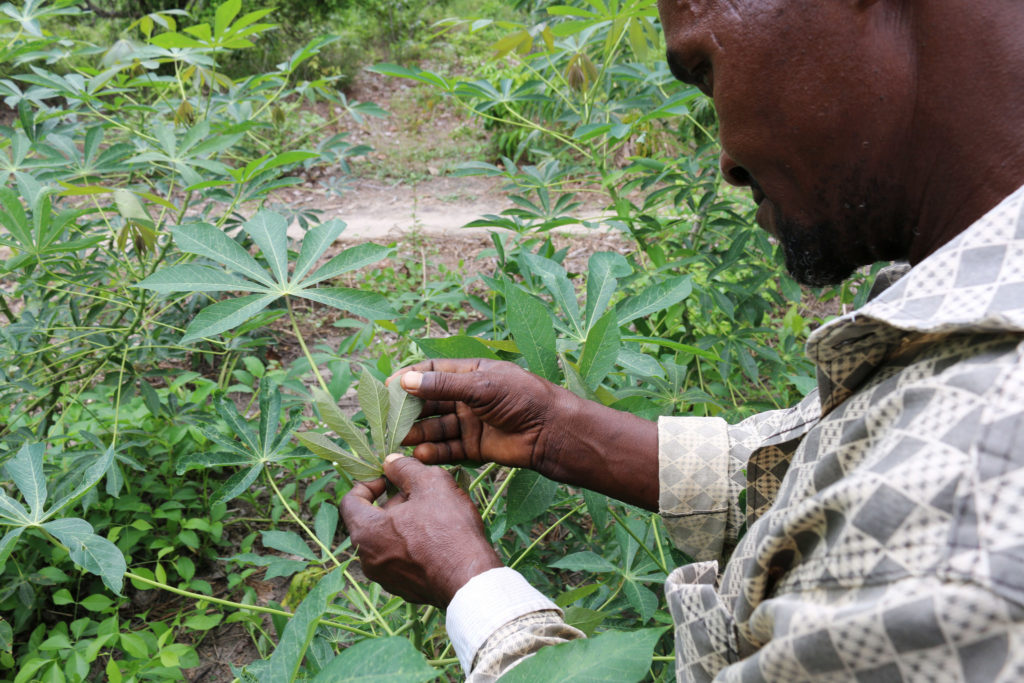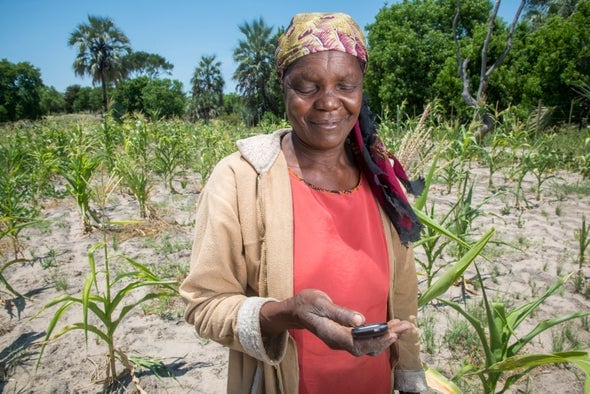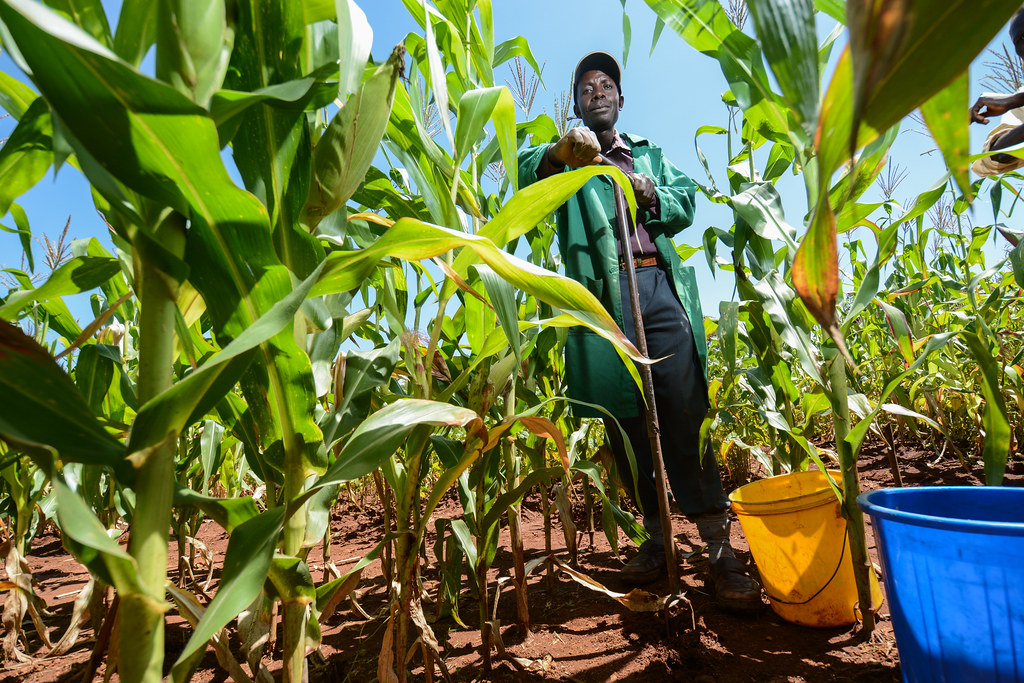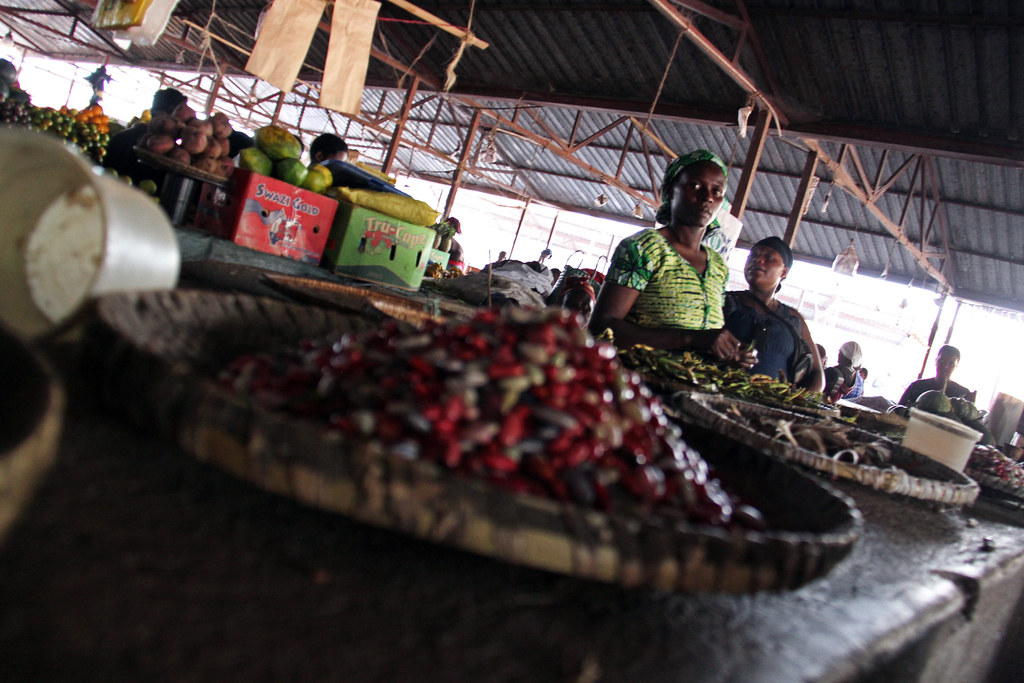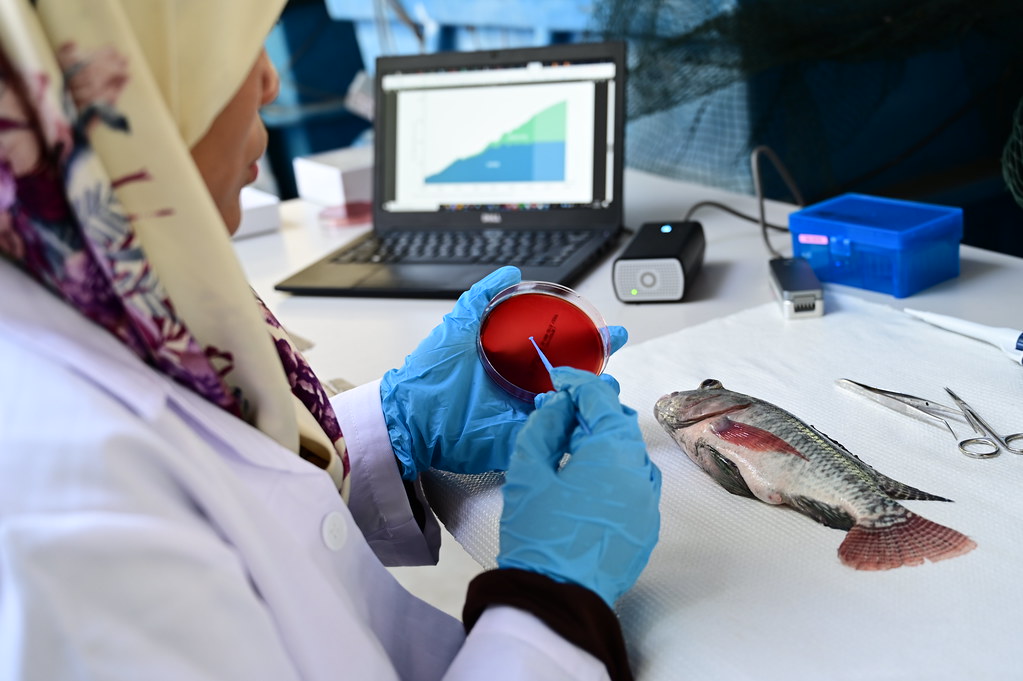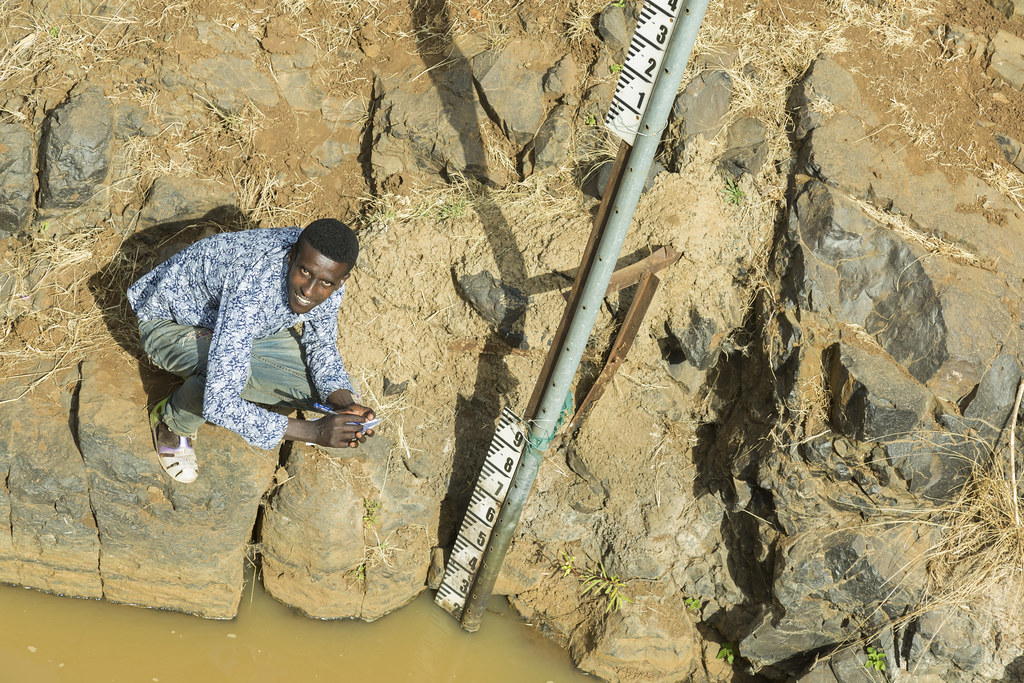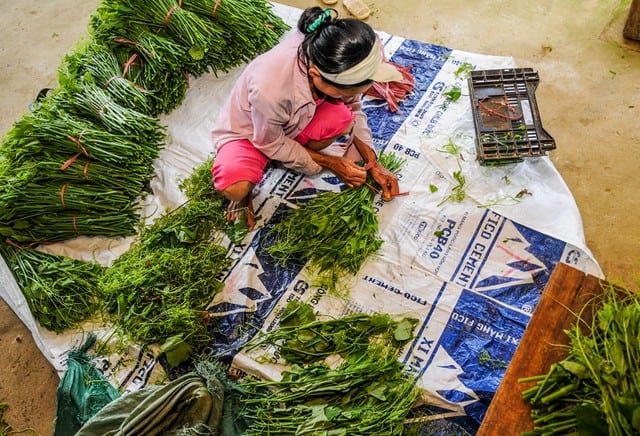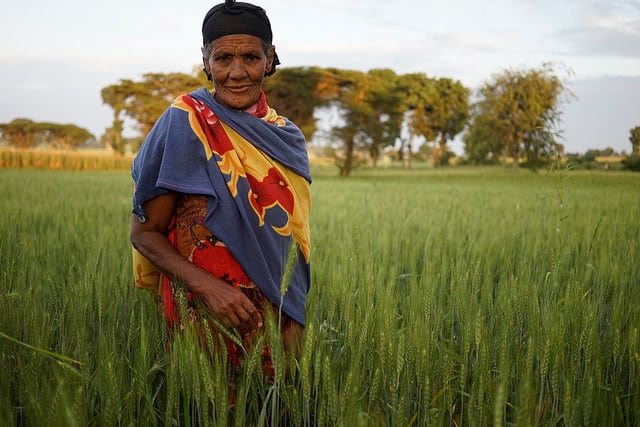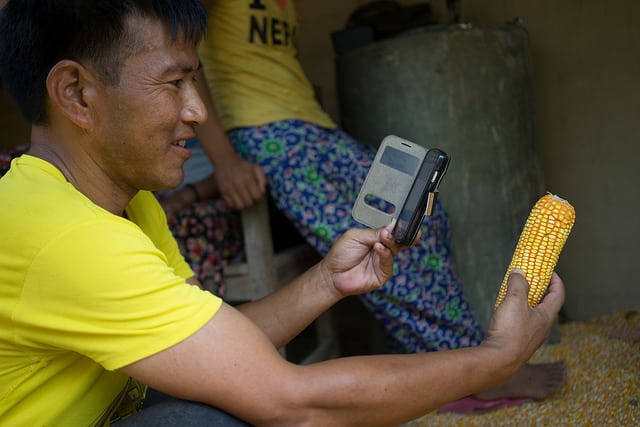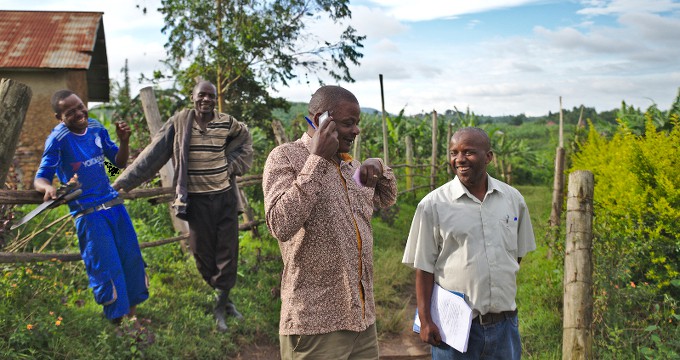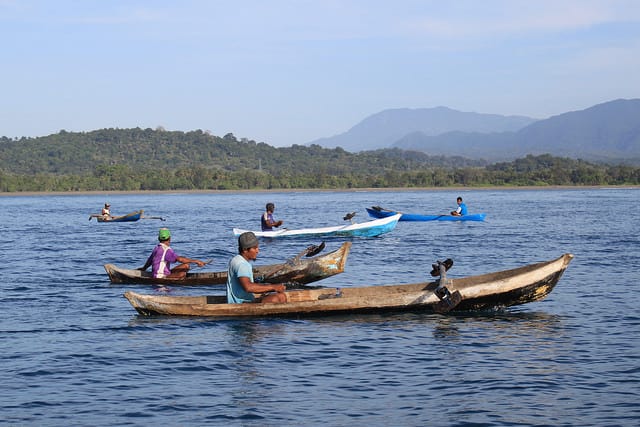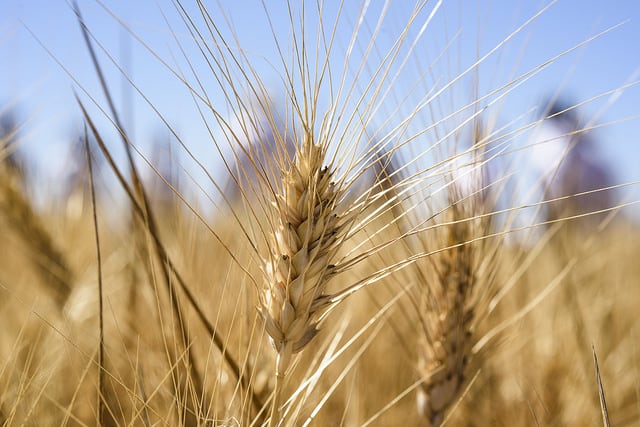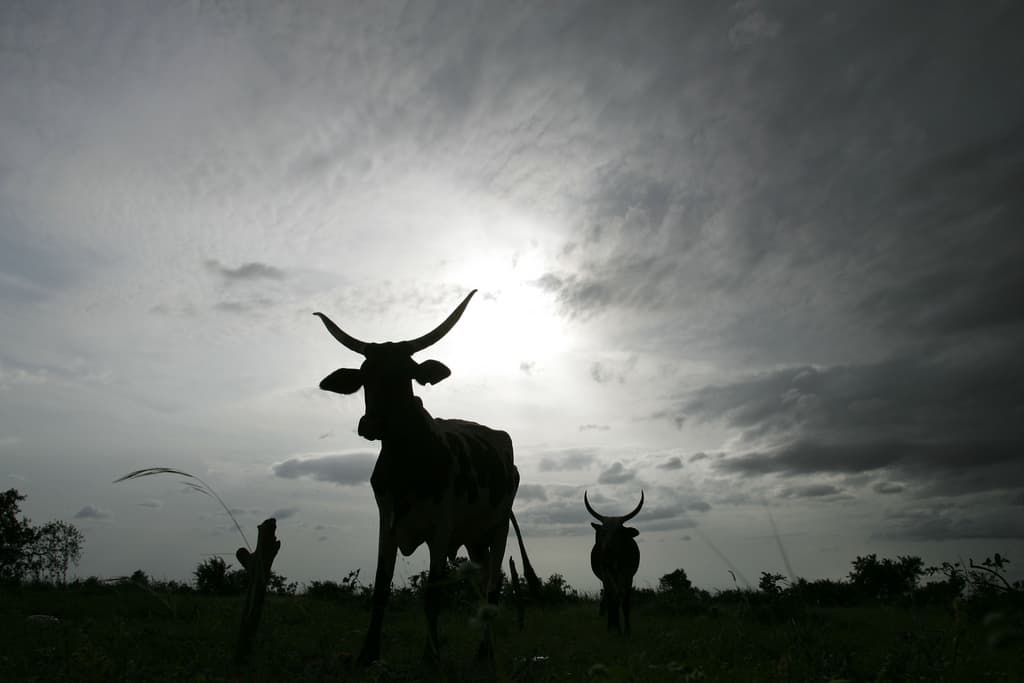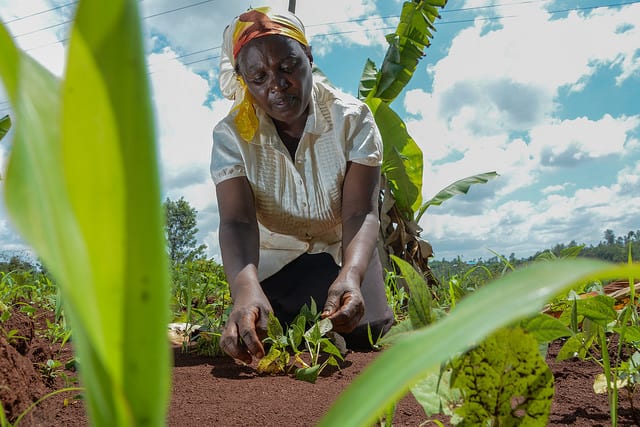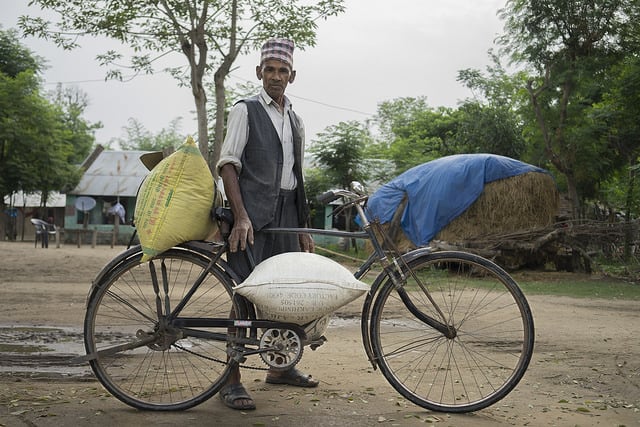2017 & 2019 Winner
PlantVillage Nuru: AI for pest & disease monitoring
Kenya
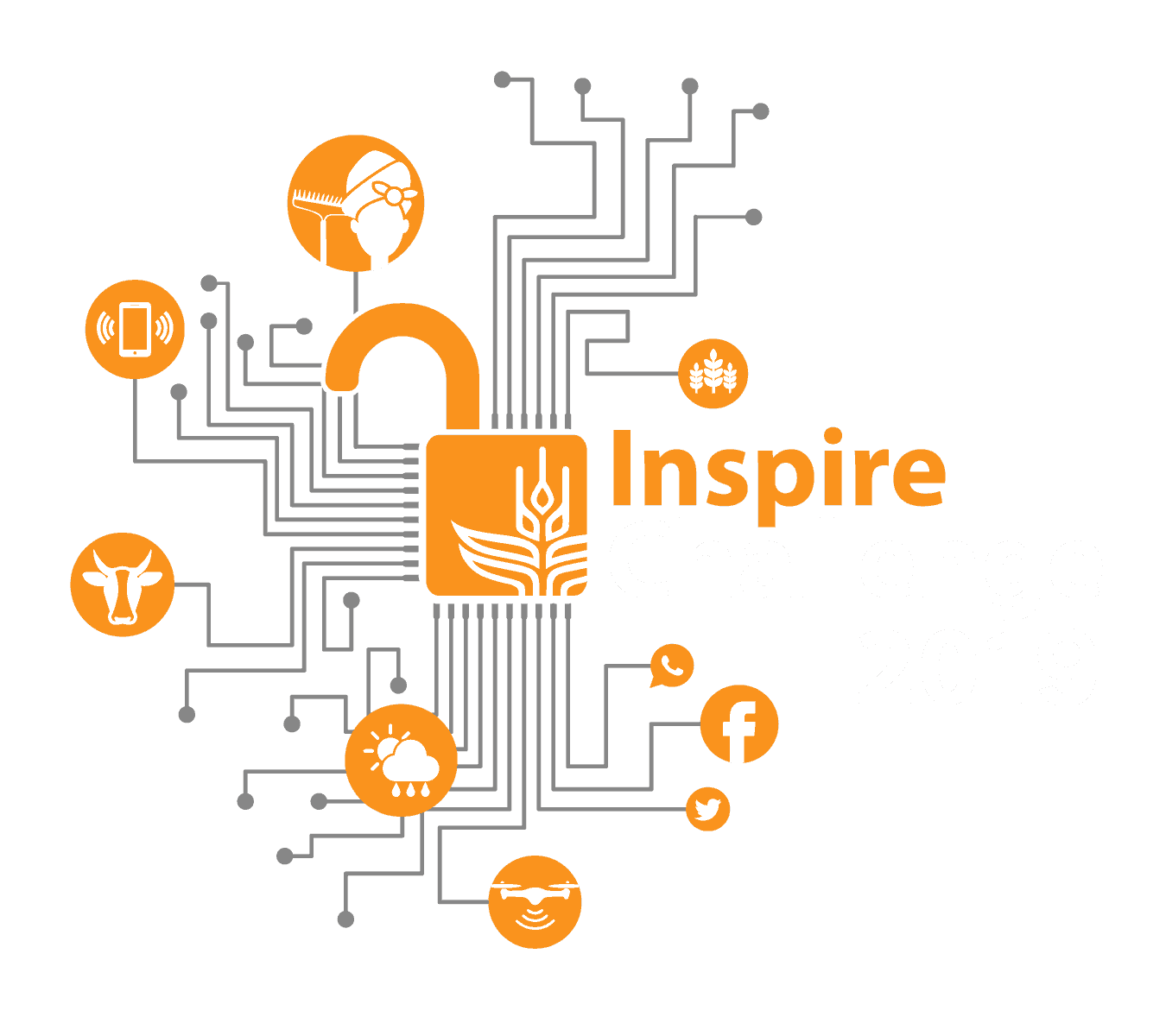
This Inspire Challenge proposal was selected as a 2017 pilot project and 2019 scale up winner, receiving a total of US$ 350,000 to put their ideas into practice.

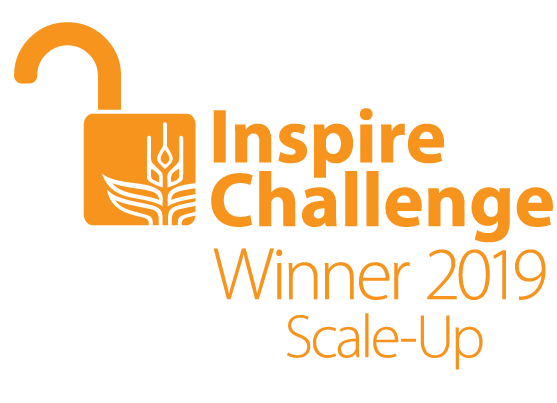
The project expects to radically transform pest and disease monitoring by using artificial intelligence (AI), advanced sensor technology and crowdsourcing capable of connecting the global agricultural community to help smallholder farmers. It aims to increase the effectiveness of farm-level advice by leveraging three critical advances:
- The democratization of AI thanks to open access platforms such as Google’s TensorFlow.
- The miniaturization of technology allowing affordable deployment.
- The development of massive communication and money exchange platforms such as M-Pesa that allow rural extension to scale as a viable economic model enabling last mile delivery in local languages.
Step by step
2021
APRIL 2021
Backend architecture redesign
A redesign of the backend architecture, led by team members at Penn State, made the application lighter for farmers to download. Farmers can now download the AI for specific crops rather than all.
APRIL 2021
Acquisition and distribution of mobile phones
CIP Kenya has purchased and distributed 240 mobile phones for extension officers, seed producers, and lead farmers in Kenyan and Tanzanian communities so that they may access the PlantVillage Nuru application.
180 mobile phones have gone to Bungoma and Kilifi counties in Kenya, and 60 phones have gone to Tanzania.
MAY - JULY 2021
Knowledge transfer study
Dr. Medha Uppala of Penn State University is leading a study that aims to understand how knowledge transfers across farmer social networks. The study results will inform how the team targets messages for various farmer groups.
2020
JAN 2020
Integration with SMS system for greater AI reach
PlantVillage Nuru integrated with a hybrid information dissemination platform that uses an SMS system to send agronomic advice, enabling the reach of AI to be greater within Kenyan communities. The integrated platform system is used by young agronomists from PlantVillage’s Dream Team.
FEB - MAY 2020
Contextualized advice for changing climate adaptation
The effects of climate change observed in 2019 has demonstrated that advice on disease pressure must be contextualised within the context of climate change. The team integrated weather and past crop performance with available water resources to deliver contextualized advice.
JAN 2020 - JAN 2023
Integration with epidemiology platform to track cassava disease
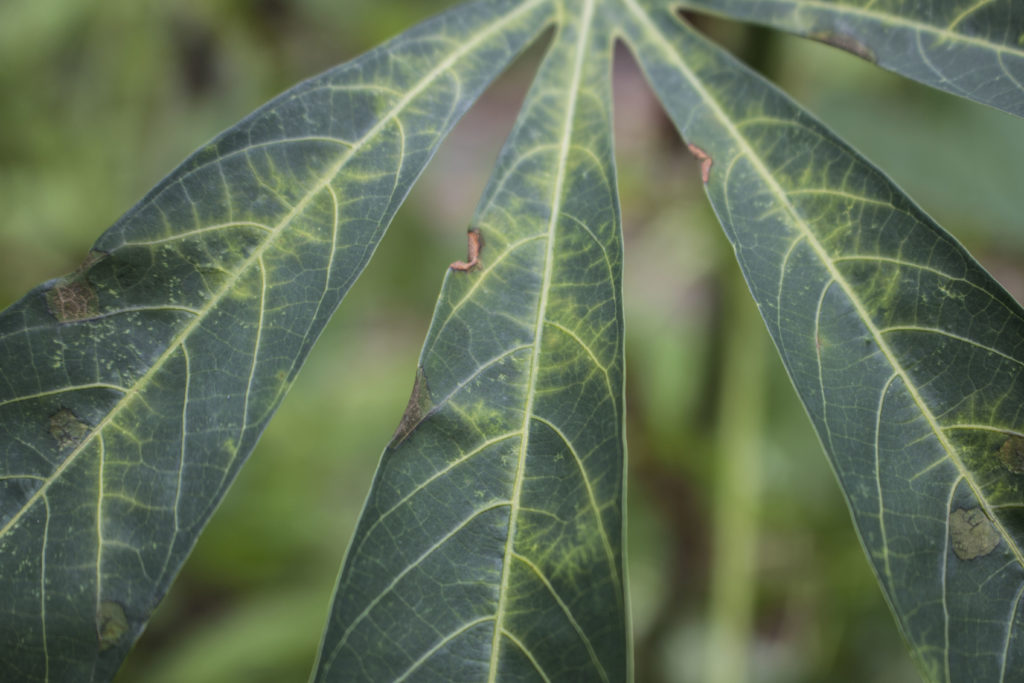
PlantVillage Nuru integrated with WAVE 2 (West African viral epidemiology platform) to help track and arrest the spread of cassava brown streak disease and extend the Nuru AI tool in West and Central African countries.
The WAVE research and development group is represented in 10 countries and will collaborate with the West and Central African Council for Agricultural Research and Development (CORAF / WECARD).
JAN - JULY 2020
Expanding agronomic advice to wheat and rice diseases
The team began work with CIMMYT to expand the app’s agronomic advice to include wheat and rice fungal diseases, training a TensorFlow model for the app to recognize symptoms of wheat rust and blast.
Photo: Petr Kosina / CIMMYT. Wheat rust.
FEB 2020
Nuru’s AI tech used as a model for nutrition project in Ghana and Vietnam
Foundation Botnar will fund a new project with IFPRI to utilize PlantVillage Nuru’s AI to automate food tracking information needed by nutritionists.
The project will test the proposition that well-designed smartphone apps using AI can be a social force for positive eating habits, specifically for adolescent girls ages 15 to 17 years in schools Ghana and Vietnam. Field and validation studies began in May 2021.
FEB - OCT 2020
Partnership with FAO to tackle locust crisis
In addition to the COVID-19 pandemic, East Africa faced an unprecedented desert locust swarm that began in February 2020. The damage inflicted by the locusts threatened smallholder farmers’ incomes and regional food security.
PlantVillage Nuru collaborated with the FAO to help track locusts during the outbreak in Kenya. An android developer built the eLocust3m app in two weeks and a development team supported the backend work. 52 people were hired across Northern Kenya to test the app in remote and rural locations.
The app accounted for 70 to 90 percent of locust observations in Kenya during the peak of the outbreak and was used extensively from Kenya to India. The team was able to integrate data from NASA, NOAA, Gro-Life and UN FAO into an ArcGIS locust mapping dashboard.
- A major approach was using AI and mobile technology and cloud systems to give untrained experts an expert-level ability to conduct accurate surveys. Watch the webinar.
- The team worked with Mercy Corp and Shamba Shape Up to deliver weekly maps on locust occurrence, which were broadcast to nine million viewers in Kenyan each week.
- The team also worked with partners Mercy Corp and the Skoll Foundation to develop a WhatsApp for Business tool to expand crowdsourcing of data, helping to put Kenya’s smallholder farmers on the frontline of reporting on Desert Locusts across the country. An estimated 23,000 Whatsapp messages were exchanged.
MARCH 2020
COVID-19 adaptations
The PlantVillage Nuru team moved all of their in-person fieldwork to remote in line with COVID-19 restrictions and to safeguard the health and safety of their staff and farmers. They continued their work remotely using their newest addition to the PlantVillage web platform, Ag3 Observatory, which allowed their Dream Team to see the issues farmers are facing in the field and then follow up with a phone call.
MARCH - OCT 2020
Curating an image set to train the ML models
Because the team could not travel to collect crop images to train the ML models, they collaborated with experts and researchers around the world to curate a database of pre-existing images.
This dataset posed challenges because the collected images were not taken for the purpose of training ML models, so image quality varied. The team had to understand the image qualities and interpret the precision and loss curves in order to improve the accuracy of the model.
MARCH 2020 - MAY 2021
Remote training with CIP
The PlantVillage Nuru team developed a new remote training procedure and trained CIP potato experts in Peru on how to label images for training TensorFlow object detection models. This enables scientists in the field to annotate pictures and speed up the training process.
Key outcomes of the training include:
-
Annotating over 7,000 individual potato and sweet potato leaves infected with viruses;
-
Developing a TensorFlow potato virus recognition model that will be field-tested in East and West Africa in Dec 2020; and
-
Developing a sweet potato virus recognition model that is being trained as of May 2021.
OCT 2020
PlantVillage Nuru extends to East Africa
The team expanded their efforts to Ethiopia through partnerships with Mercy Corp and the Government of Ethiopia to broadcast advisories to an estimated five million farmers a week.
The content of the advisories includes information about locations of swarms, areas of risk, and helpful resources for those affected by desert locusts.
OCT 2020
Partnership to provide climate change advice
The team worked with 39 years of data from FEWSNET/Climate Hazard Center (CHIRPS) to provide climate change advice on TV to nine million people on Shamba Shape Up and send weekly SMS advice to 350,000 people.
The goal is to continue building the foundation through partnerships with local governments to expand the Dream Team model to new counties in Kenya and new countries in 2021.
2019
OCT 2019
Project awarded US$250K Inspire Challenge scale-up grant
The project was awarded a 2019 Inspire Challenge Scale-up grant of US$250K at the third annual convention of the CGIAR Platform for Big Data in Agriculture, 16-18 October 2019.
2018
JUNE 2018
App made available on Google Play
Nuru AI was made freely-available for download onto Android devices through Google Play, June 2018. It has been downloaded by users on all continents and used extensively in Africa and South-East Asia. This is the first stage of the application roll-out; additional funding would allow roll-out at a broader scale.
OCT 2018
Expansion to other crop diseases
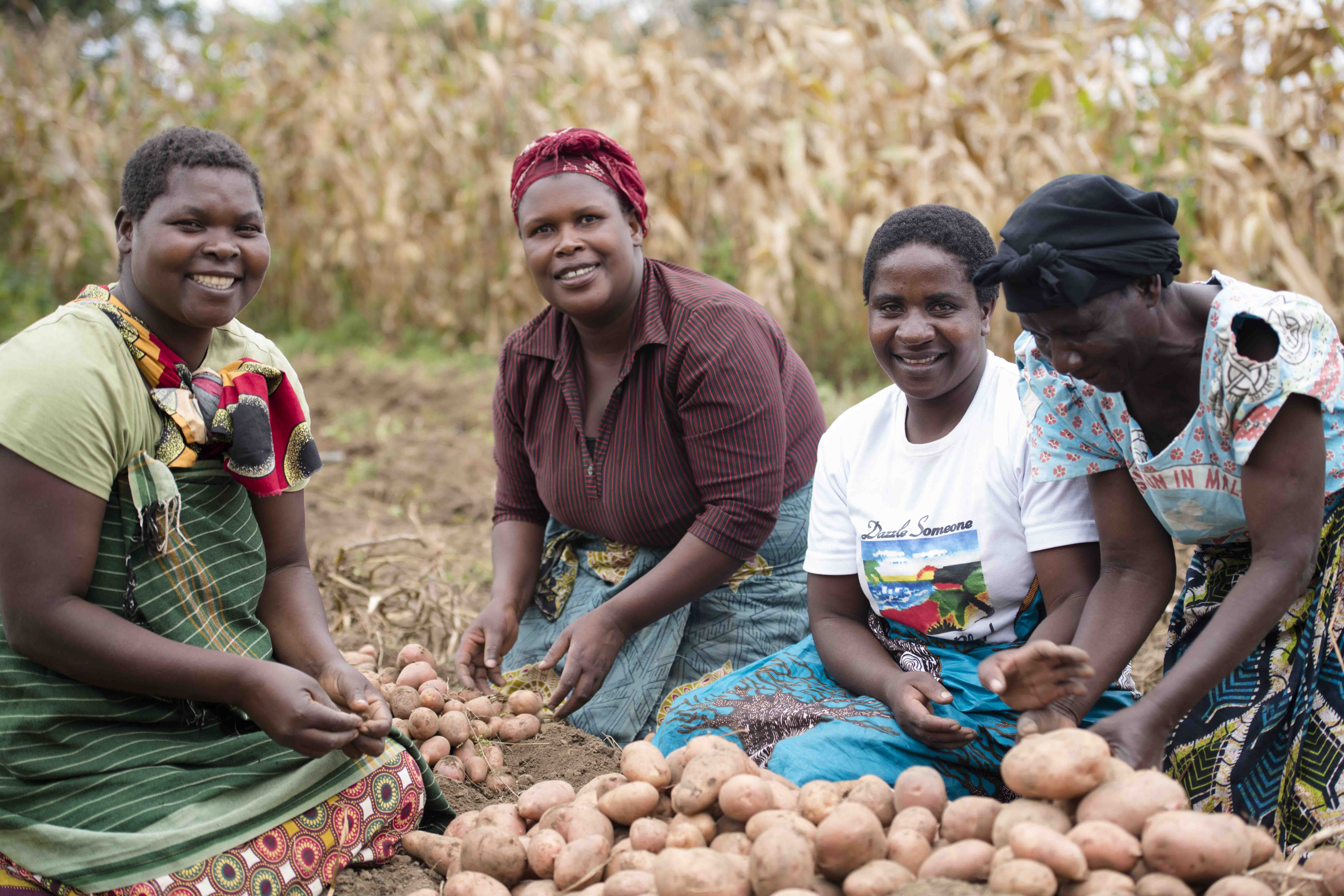
Matiness Gongerta (2nd from right), a potato farmer from the Dedza district in Malawi, joined the farmers group in 2014 when she received new and improved varieties from CIP, and disease-free. Photo: Hugh Rutherford/International Potato Center
While the project focused on cassava disease detection, it also trained an accurate model for potato diseases which has been field-tested and was deployed in India in October 2018 with 1,000 farmers as part of the Indian Government’s FarmerZone platform. The application is available in Hindi and Punjabi and will scale up its reach to 200,000 farmers within 24 months.
In collaboration with the United Nations Food and Agricultural Organization (FAO), the team has developed a tool to identify fall armyworm damage, and images of banana and sweet potato diseases are also being collected for future work.
The fall armyworm tool has demonstrated successful deployment of AI to farmers; it has been used in 66 countries and 28 languages by the UN FAO.
2017
SEPT 2017
Project awarded US$100K Inspire Challenge grant
The project was one of five winners of the Inspire Challenge 2017 and was awarded US$100K at the inaugural annual convention of the CGIAR Platform Big Data in Agriculture, 19-22 September 2017.
OCT 2017
Developing a mobile AI assistant to diagnose cassava diseases offline
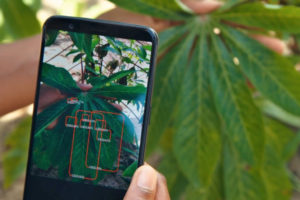
Under field conditions, Nuru was, on average, twice as accurate as the extension workers she was tested against.
Nuru is linked to PlantVillage and allows advice from experts (at CGIAR/FAO/governments) to be sent offline and in local languages (currently in Swahili, French, Twi, Hindi, and English).
OCT 2017
Training the convolutional neural network
The AI relies upon TensorFlow, a machine learning environment where a convolutional neural network (CNN) is trained to recognize crop diseases based on images collected at IITA research plots.
The project overcame a number of significant challenges in getting an accurate CNN to work offline inside an Android app; in-phone CNN deployment is not yet a standard approach and most systems rely upon the cloud, which would not be functional in a smallholder farmer setting where connectivity is poor. The CNN is a work in progress and will improve over time with more training.
NOV 2017
Building an expert portal on the PlantVillage platform
 The project also built an expert portal on the PlantVillage platform for IITA scientists to examine records of diseases diagnosed by Nuru. Experts are automatically notified when a user receives a diagnosis, and they are shown the images and data (location, AI accuracy, time) associated with the diagnosis. This allows IITA to both check the accuracy of the AI assistant and note where and when diseases are being recorded.
The project also built an expert portal on the PlantVillage platform for IITA scientists to examine records of diseases diagnosed by Nuru. Experts are automatically notified when a user receives a diagnosis, and they are shown the images and data (location, AI accuracy, time) associated with the diagnosis. This allows IITA to both check the accuracy of the AI assistant and note where and when diseases are being recorded.
An example of the portal in action was the identification of Cassava Mosaic Disease (CMD) in Oddar Meanchey Province, Cambodia where there had previously been only unconfirmed reports. The expert portal enabled IITA’s James Legg to interact directly with the Nuru user in Cambodia and discuss monitoring and control of CMD. This was a clear demonstration of Nuru’s potential to provide early warning support for the identification and management of new crop disease outbreaks.
NOV 2017
Testing the system with farmers in Busia County, Kenya
The system has been tested with farmers in Busia County, Kenya in partnership with Self Help Africa, a charity helping 28,000 farmers in the cassava value chain.
In Busia County, Kenya, PlantVillage is working with over 100 Lead Farmers who received smartphones at the beginning of 2019. Each Lead Farmer visits 20-40 Following Farmers per month to check on the health status of their farms using the Nuru application. PlantVillage has seen extraordinary engagement using Nuru to diagnose crop diseases and pests.
DEC 2017
AI takes root
The team annotated thousands of cassava plant images, identifying and classifying diseases to train a machine learning model using TensorFlow. Once the model was trained to identify diseases, it was deployed in the app. Farmers can wave their phone in front of a cassava leaf and if a plant had a disease, the app could identify it and give options on the best ways to manage it.
For more information on how Nuru is helping farmers better identify and manage diseases quickly, watch Google’s video spotlight on the project below and read more on Google’s blog, The Keyword.
Gender & Youth Inclusion
- Women farmers have been actively engaged in the PlantVillage Nurudesign, development, and training processes.
- The team works with local women leaders who volunteer to serve as lead PlantVillage Nuru farmers in Busia, Bungoma, Kilifi counties in Kenya and northern Tanzania.
- 83% of PlantVillage Nuru users are women.
Project News and Resources
Grant will support expanded use of artificial intelligence for crop health
26 Nov 2019
Penn State News
Meet all the Winners

